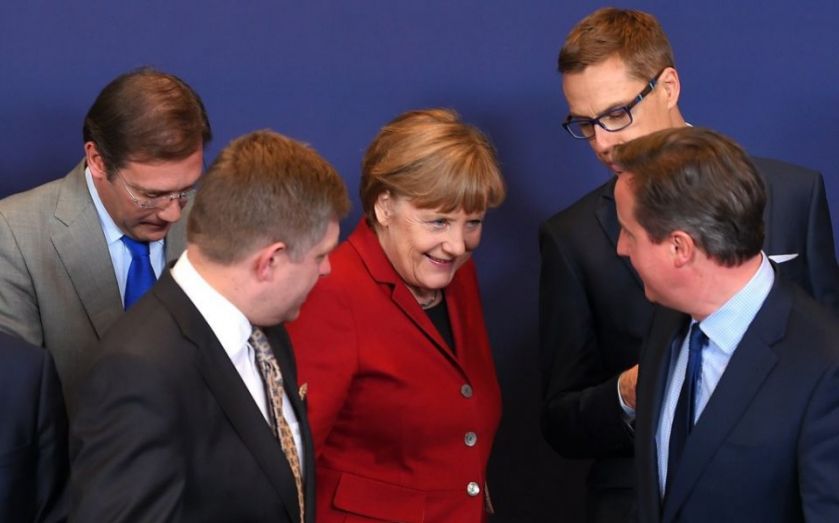Referendum opponents must now get behind the push for EU reform

Not many people predicted Thursday’s monumental shift in the political tectonics, least of all the people paid to make the predictions, the pollsters. But there was one politician who foresaw the total collapse of the Liberal Democrats that contributed so largely to the Tory majority we have today. The result means that very same politician is about to have an incredibly important role in UK politics in the coming year. That politician’s name? Angela Merkel.
The German Chancellor told David Cameron in 2010 that “the little party always gets smashed” when it comes to coalitions. It seems she was right. That’s not to say the Lib Dems’ destruction was always ordained. After all, their decision to put themselves firmly on the wrong side of the electorate and business leaders by opposing an EU referendum was just one part of a policy platform that was uninspiring at best and counterproductive at worst. The Lib Dem collapse, combined with a Labour Party that was tactically and ideologically out-played by the Conservatives’ superbly-led electoral machine, means that the MPs returning to Westminster today are faced with a very different government to the one most predicted. That government will have very different priorities to, say, a Coalition 2.0. So what will Conservative Majority 1.0 do? Act quickly for certain.
Cameron will want to deal with a number of issues immediately, to add certainty to the process so that he can focus on the big tasks that will define his second term in Number 10. Boundary reform will be immediately on the cards. It still stings for many Conservatives that, after having agreed to the AV referendum in return for a fairer, more equitable re-drawing of the parliamentary constituencies, the Lib Dems went back on their promise to allow the reforms to pass. Getting the boundaries redrawn quickly not only helps the long-term prospects of the Conservative Party by levelling the electoral field, it also deals with unfinished coalition business.
Then there is the EU Referendum Bill. Rather than endless horse trading over issues such as the franchise and the question, where the In-at-all costs Liberal Democrats would have looked to stack the die, the Bill can be passed quickly, to allow the government to focus on the most pressing issue of the renegotiation. Re-elected James Wharton MP saw his EU Referendum Bill pass through the Commons, only to see it cynically talked out in the Lords. There is no fair minded reason why this Bill needs to be tinkered with before the government seeks to make good on its manifesto pledge.
Once the Bill enabling the referendum is approved, the focus will quickly turn to defining what type of EU relationship the public are to be offered. That is where Merkel comes in, as she will play an incredibly important role in determining the renegotiation package Cameron is able to secure.
Cameron has set out a positive vision for a new relationship with the EU, from cutting red tape for SMEs and returning powers over social and employment legislation, to changes that make our immigration system fairer. These reforms are vital, not only to secure a deal that can keep Britain in the EU, but also to ensure that the EU reverses its downward trajectory relative to the rest of the world.
Cameron now has a strong electoral mandate, and the support of the business community, to go to Merkel and the Brussels establishment to get a deal that truly works for British business and voters alike. After months of sniping from opponents of a referendum, it is time for them to positively contribute to the renegotiation process, and not fast-forward to a premature In/Out debate.